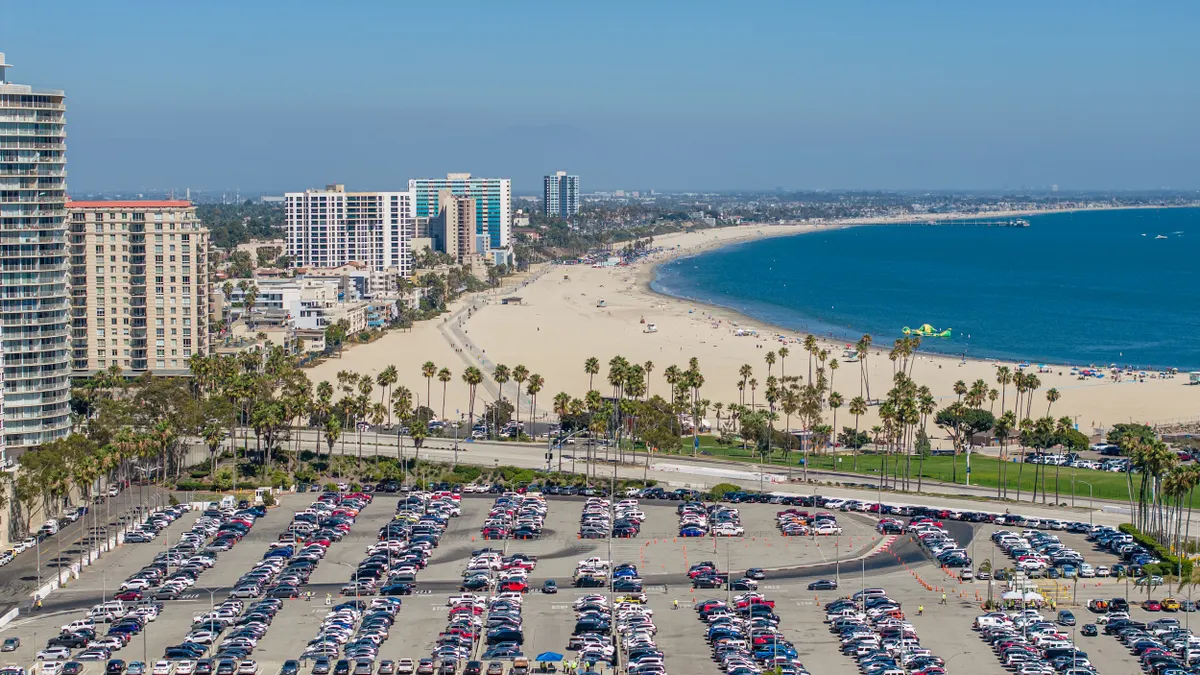Living alone offers many benefits including a sense of independence, and it's considered a sign of economic prosperity in many countries and cultures. But solo living also comes with a nagging downside: loneliness.
U.S. Census Bureau statistics show a steady decline in the number of people per household since the 1970s. In 2012, it found that the number of single-person households had increased to more than a quarter of all American households, 27%, and that number is expected to grow in the coming years. An analysis by Deloitte predicts that the number of solo households will rise 1.1% each year until 2030.
Urban areas have a larger proportion of single person households than rural areas, which is rather ironic considering both the higher cost of living alone in a city and the sheer number of people eligible for cohabitation in urban areas.
Some people think that loneliness is only a problem for seniors, but research shows that loneliness is an issue for all demographics in all countries. "It's a global, human phenomenon," said Timothy B. Smith, Professor of Counseling Psychology at Brigham Young University in Utah. "We are wired neurologically for connectivity. We need other people to thrive."
Although loneliness previously was viewed solely as a mental health issue, "about 20 years ago people started to connect physical health with social isolation and they recognized that the effect was quite large," Smith said. "When we have a lack of social contact and social support, many things start to go wrong not only emotionally, but also physically."
Various research has shown that loneliness and social isolation negatively impact aspects of physical health such as blood pressure, heart disease, immunity and dementia. Smith's research group showed that it also affects a person's life span.
"We are wired neurologically for connectivity. We need other people to thrive."

Timothy B. Smith
Professor of Counseling Psychology, Brigham Young University
"We surprised the scientific community with the data that showed social relationships were more predictive of longevity than many physical factors, including high blood pressure, high cholesterol levels, obesity and alcoholism," he said. The initial study and follow-up research showed that loneliness and social isolation have quantifiable physical effects, and prolonged loneliness could shorten a person's life by about 4.5 years. "When we let those persistent feelings accumulate, they end up with emotional consequences, and subsequently the physical consequences," he said.
Tackling loneliness by strengthening existing relationships or building new meaningful ones is key to sustained mental and physical health. But making connections in the modern world looks different than it used to. Instead of having neighborhood gatherings or joining community groups, some people prefer to connect with others digitally through social media. That sometimes can help combat isolation if it's interpreted as a meaningful connection, researchers say.
However, social media also "can have the opposite effect [and] make people feel more disconnected," Smith said. For example, viewing others' positive, fun-filled social media posts can make people feel like they're missing out or that their life doesn't stack up, thus increasing loneliness. "Online social contact can increase connection or it can decrease it, and usually it does both," Smith said.
Researchers suggest that going beyond social media to make real-life, meaningful connections better prevents loneliness. "It takes active social choices in an urban setting," Smith said. "The norm is becoming to mistrust the people around us, but it takes a conscious choice not to work alone."
Smith and other researchers have also found that strong family or friend relationships have a more profound effect on combating loneliness than forced interactions, such as by paying professionals to check in on a lonely person. That strategy is growing in popularity, though. Take, for instance, the new service in France in which postal workers will check in on elderly customers.
Professional services are better than nothing, especially in extreme cases of isolation when a person does not have any family or close friends. But generally speaking, the positive effect is "not nearly as strong as [with] preexisting social connections," Smith said.
Researchers applaud the progress that government entities are making with recognizing and addressing loneliness and isolation as a public health problem. But as it stands, widespread plans of attack largely are still in the nascent stages. France just launched the postal worker program, and leaders in Switzerland and Germany have pondered taking on the issue.
"It used to be we connected in all kinds of ways, in terms of social organizations. Our social structures have changed ... We're now to the the point of the pendulum where we need to come back to that."

Timothy B. Smith
Professor of Counseling Psychology, Brigham Young University
Last month, the United Kingdom appointed a minister for loneliness, continuing the work of late British lawmaker Jo Cox. In 2017, the Jo Cox Commission on Loneliness released a report showing that more than 9 million British adults claim that they're often or always lonely.
Regarding the new minister's appointment, the commission's chairs told Smart Cities Dive: "We are really pleased that the government is taking the issue of loneliness very seriously... This new role will bring together business, community groups and the public to create a national strategy to tackle loneliness. The minister will also be responsible for setting up a new fund which will test approaches to reducing loneliness and scale up the ones that work. The minister has also committed to establishing a universal measurement of loneliness in the UK."
Vancouver is one city that took an active approach to social isolation several years ago by establishing the Mayor's Engaged City Task Force. In addition to improving citizens' engagement with city hall, the initiative encourages and fosters greater connectedness among neighbors.
Thus far, no widespread loneliness program exists in the United States.
"If the U.S. government were to take on [loneliness], that would be great in enhancing public awareness," Smith said. The most beneficial actions for federal or municipal governments would be "public policy and public health initiatives that strengthen family and existing social networks, rather than trying to create new supports," he said. "Let's go after social isolation and... provide individuals with skills, not temporary prop-ups. A temporary visit from a person will not help [a lonely person] long term."
"It used to be we connected in all kinds of ways, in terms of social organizations. Our social structures have changed," Smith said. "We're now to the the point of the pendulum where we need to come back to that."


















